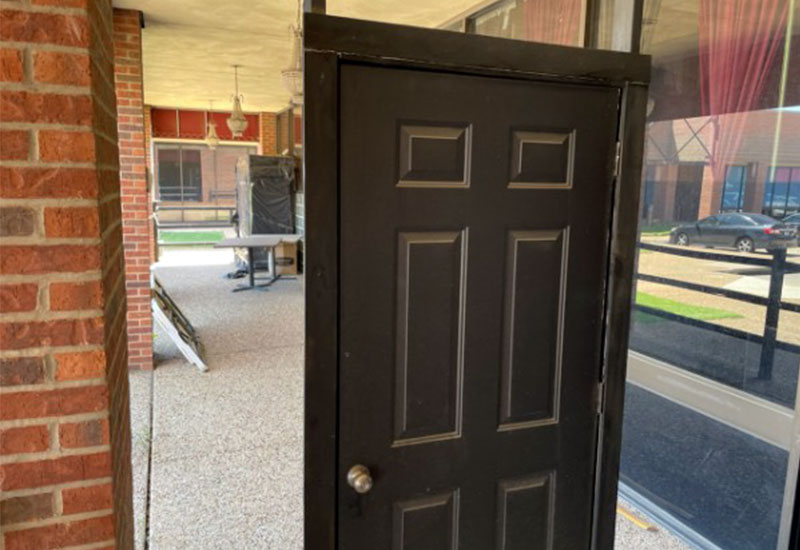As I was walking into a restaurant the other day, I noticed a kind of construction I’ve never seen before. The restaurant is apparently expanding by building a patio, with framing for the structure clearly in place. However, the builders hung the door that leads to the patio with no walls on either side. While the door is locked (I checked), anyone could simply walk around on either side of it to enter the area.
I am not criticizing the builders. Surely they know that a wall-less door is inadequate security. I assume it made sense for them to hang the door in place before finishing the walls on either side at a later date.
Nonetheless, it was an odd sight. And one I thought serves as a lesson for more than construction workers.
Why I was born in Houston
In every area of life I can identify, we are as dependent on others as a door is dependent on its adjacent walls.
While our culture loves to exalt the “self-made” person, in reality there is no such thing. None of us chose to be conceived or brought into this world. None of us chose our parents, our physical capacities, or most of our early experiences.
There is no defensible reason why I would be born to parents who would love and nurture me rather than abusing or abandoning me. I can take no credit for being born in Houston, Texas, rather than in Pyongyang, North Korea. I heard the gospel because two men knocked on my apartment door to invite me to their church. I was educated in ministry through the cooperative financial support of Texas Baptists and Southern Baptists.
Anyone who knows my wife knows I do not deserve her. The same goes for my children and my amazing grandchildren. And for the ministry partners with whom I am privileged to work every day. And for the board members and donors who make our ministry possible.
“Not by might, nor by power”
The fact of our mutual self-dependence has been especially on my mind in these weeks following my spinal fusion surgery. I am still in that season of recovery where I am forbidden to BLT—bend, lift, or twist. If I drop something on the floor at home, Janet has to pick it up. If I need something at work that weighs more than ten pounds, someone has to bring it to me.
In one sense, I have not been this reliant on others since I was a child. But in another, my present circumstances simply illustrate the reality that has been there all along—I can do nothing significant by myself. Nor can you.
In an ultimate sense, of course, everything we do that matters is dependent on the God who makes it matter. You and I cannot convict a single sinner of a single sin or save a single soul. We cannot heal a marriage or restore a home. We can do nothing eternal in our temporal capacities. Only when God works in and through us can our lives and service matter beyond ourselves.
This declaration should be emblazoned over the beginning of every new day: “Not by might, nor by power, but by my Spirit, says the Lᴏʀᴅ of hosts” (Zechariah 4:6).
A coal in the fire
Why is the fact of our dependence on God and others so important?
One: God will not do for us what we try to do for ourselves.
Our Lord honors the free will he has given us. If I will not ask him to lead me in writing this blog, he will not lead me. In that case, you and I will both be impoverished. Conversely, he always gives his best to those who leave the choice with him.
Two: Christian maturity requires accountability community.
A coal taken out of the fire goes out. Every image of the church in the New Testament is collective: a body with many members, a vine with many branches. There are no solos in the Book of Revelation.
I need to pray for you and I need you to pray for me. I need to teach you and to learn from you. I need to serve you and to be served by you. The more we do life in mutual interdependence, the more we experience the abundant life of Jesus.
“Union is strength”
As our culture turns further and further from biblical morality, American Christians will need to stand together more than ever. We will need to “major on the majors and minor on the minors.” We will need to recognize and value each other in all our diversity and mutuality.
Charles Spurgeon observed, “Satan always hates Christian fellowship; it is his policy to keep Christians apart. Anything which can divide saints from one another he delights in. He attaches far more importance to godly intercourse than we do. Since union is strength, he does his best to promote separation.”
“Union is strength,” indeed.
How strong will you be today?



